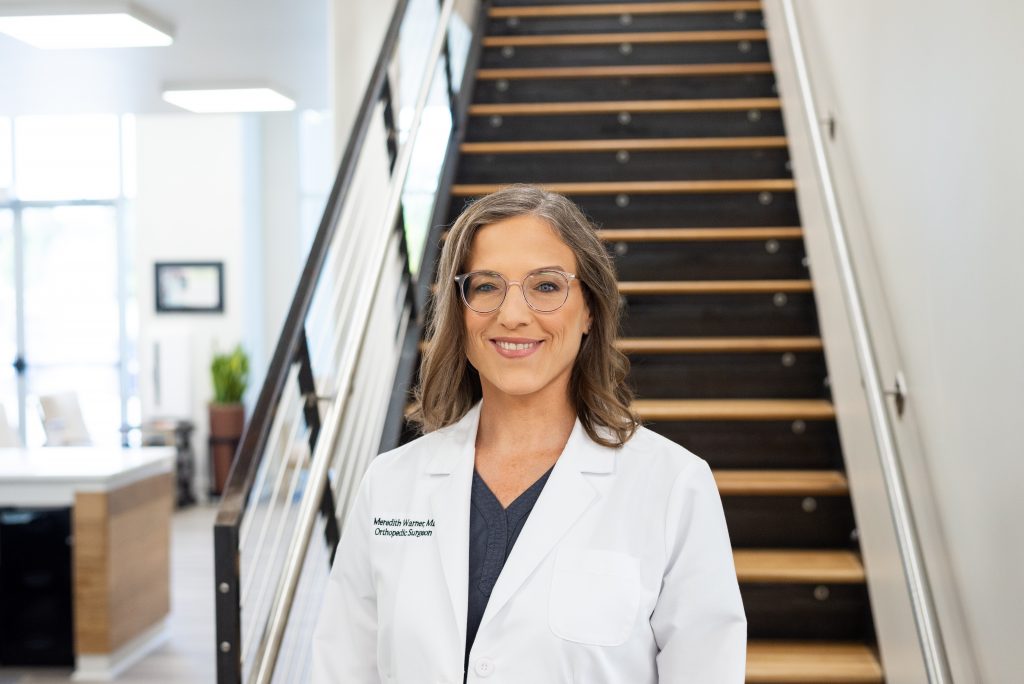The Benefits Of An Independent Physician

Hi, Dr. Meredith Warner here –
Many patients aren’t aware of the difference between small private practices, large group practices and hospital-based practices – and what those differences can mean for their health and treatment plans. As a medical professional of over 20 years who chose to start a private practice in 2013, I’d like to share what I know with you today:
What Is A Private Practice?
Solo, or private practices are exactly what they sound like – a single physician owns and operates the practice, usually with limited staff and a smaller patient base. This can benefit you, as physicians in a solo practice have more autonomy and can spend as much time with you as needed. You’ll be able to develop a personal relationship with your doctor and benefit from their unique style of medical care.
Solo practices are not nearly as common as they used to be, but can still be found in suburban or rural settings. Often, it’s easier for a physician to join a hospital group practice, as the financial and time-cost burden of advertising, billing, seeing patients, managing staff, facility and computerized record systems and more rests solely on the shoulders of the physician running the practice.
Less than 5% of physicians choose to run a solo or small group practice. However, this is really the only way to maintain independence and to be a true advocate for your patients – and this is why Warner Orthopedics & Wellness is an independent practice.
What A Hospital Group Practice Is:
Hospital group practices can be divided into single-specialty and multi-specialty practices. Single-specialty will have two or more doctors available to see patients for one specialty – and multi-specialty practices will offer various types of treatment for a wide range of conditions. The larger the organization, the more varied amounts of available specialty care.
Large groups of physicians that are physically separated from a hospital may still actually be a financial partner with a hospital. Many hospitals and even insurance companies (eg: United Health Group) have bought large groups for a revenue stream. This makes the group practice beholden to the purchaser but the patients usually have no idea about such relationships.
One of the reasons that hospitals buy groups of physicians is to earn money. Once a hospital owns a physician group, the cost of each physician service can be multiplied by about 5. This is because legally any hospital owned entity can charge more for any given service than a basic solo practice or small group physician is allowed. This doesn’t make sense, but is one of the peculiar aspects of the healthcare system that adds costs for no reason.
Group practices can be more convenient for patients, as you may be able to see separate physicians for different conditions within the same building. However, there are benefits to choosing an independent practice versus a group practice – keep reading to learn why:
What You Should Consider When Seeking Treatment
As you get older and encounter more health problems that may require surgery, it will become all the more important to seek out second opinions. Sometimes, you can ask your primary doctor for a referral if they don’t specialize in the field you need, or ask them to recommend another physician for your second opinion. If your physician is part of a group practice, many referral systems are set up so that they have to refer a specific physician.
Such referrals are set up so that they financially benefit the physician, hospital, or physician group your doctor is part of. This is an inherent conflict of interest of which many are not aware.
This means that your doctor (the PCP within a large hospital-based group) will have to refer within the hospital system instead of referring you to an independent specialist – it’s part of their contract. This isn’t necessarily a bad thing, but it may not be the best thing for you. Even if your PCP would likely see an outside surgeon himself or herself, the same PCP will refer to surgeons within the group because they must. For a more well-rounded understanding of the options available to treat your condition, you may want to seek out a physician outside your primary physician’s hospital group. It may be that you prefer the surgeon that is part of the hospital-based group, but at least you have a choice if you seek an outside opinion.
Some doctors are also in what is called an “accountable care organization,” and these physicians are incentivized to keep treatment costs low or to “ration” treatment. This means that your referrals and treatment plans may be impacted by this “rationing” behavior in an effort to save the organization money.
Many independent physicians will not be part of such organizations, and will have the autonomy to recommend the treatment you need – not just a treatment that will lessen the severity of your symptoms while saving the hospital group money. For example, if a physician is part of an ACO then they are less likely to order MRIs, labs, CT scans or refer to specialists. This is because at the end of the year, the ‘savings’ are shared among the hospital and the doctors. That is, their bonus might be based on rationing – incentivizing them to not order needed tests for you.
How Our Practice Operates
There are a lot of things happening within the medical system that often do not work in the patients’ favor. I think it’s important that you be aware of that, so you can confidently make choices about your own treatment.
Warner Orthopedics & Wellness is an independent practice that I founded in April of 2013. I wanted to bring my expertise in the treatment of pain, orthopedic injuries, musculoskeletal problems and complex foot and ankle issues to a private practice where I could expand the services I was able to offer and have more autonomy over the treatments I offered my patients. I have enjoyed the autonomy of a private practice and have found that it’s made me a better physician as a result.
Warner Orthopedics & Wellness is an independent practice that I founded in April of 2013. I wanted to bring my expertise in the treatment of pain, orthopedic injuries, musculoskeletal problems and complex foot and ankle issues to a private practice where I could expand the services I was able to offer and have more autonomy over the treatments I offered my patients. I have enjoyed the autonomy of a private practice and have found that it’s made me a better physician as a result.





